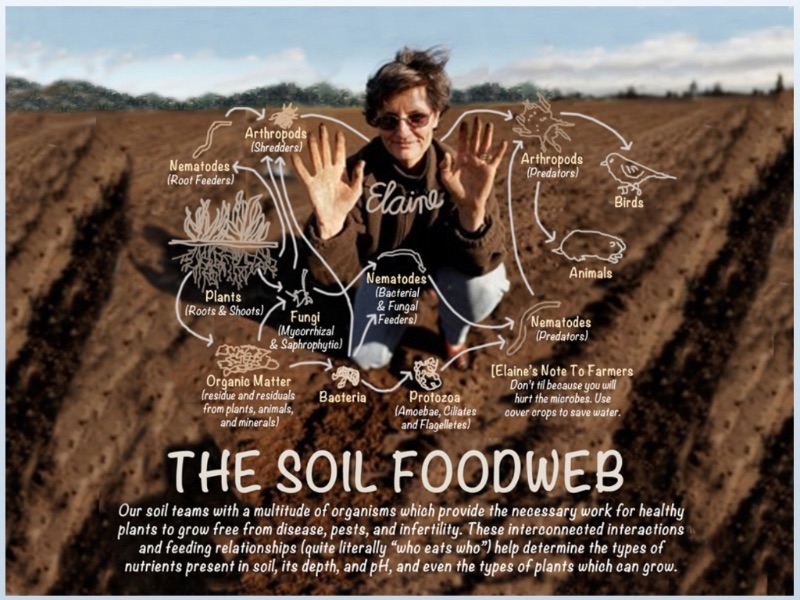Ep. 54: Dr. Alan Goldberg – Johns Hopkins Bloomberg School of Public Health -ft. Jennifer Hashley of New Entry Sustainable farming ||
Dr. Alan Goldberg of the Bloomberg School of Public Health at Johns Hopkins University joins us for episode 54 of Sourcing Matters. Goldberg is a professor of Toxicology, the Founding Director of the Johns Hopkins ‘Center for Alternatives to Animal Testing’, and a Principal of the Berman Institute Global Food Ethics Policy Program. In 2007 he was appointed to the Pew Commission on the Impact of Industrial Farm Animal Production.
Goldberg has served in several Administrative positions at Johns Hopkins. He was The Associate Chair of the Department of Environmental Health Sciences, Director of the Division of Toxicology, and for 15 years was the Associate Dean at the Bloomberg School of Public Health. As a Dean, he was responsible for Research with specific responsibility for technology transfer, conflicts of interest, & work with the private Sector.
.
Ethics are: A set of moral principles : a theory or system of moral values. Basically – “A guiding philosophy”. Dr. Goldberg’s work over the last 50 years has reframed our perspective on ethics in food and animal management, and what the resulting impact means to each stakeholder. In 2007, Dr. Goldberg served as a PEW Commissioner on the study of the Impact of Industrial (US) Farm Animal Production, on issues of public health, environment, animal welfare and social justice. Listen-in and learn what Dr. Goldberg has to say about this monumental report which has reframed our approach to production and consumption of proteins, yet unexpectedly it’s had almost no impact on our public policy. It’s been the consumer acting as the agent of change in adopting ethics on the plate.
.
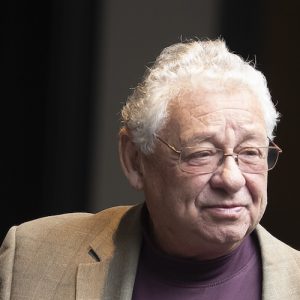 In early November 2018 Goldberg hosted The “ChooseFood” symposium in Baltimore. It was a gathering to evaluate some of the core ethical questions of food and its production. Top brass speakers shared insight on ethics of in food labor, environmental impact, externalities, animal welfare, health risk factors & new tech – all were on the docket. Coming it at from the food animal side It was a fascinating exercise for me to see how far we’ve come since the 2007 PEW commission report, what more needs to be done with food animal production, and how broad the aperture has grown to encapsulate ethics into our food and global production.
In early November 2018 Goldberg hosted The “ChooseFood” symposium in Baltimore. It was a gathering to evaluate some of the core ethical questions of food and its production. Top brass speakers shared insight on ethics of in food labor, environmental impact, externalities, animal welfare, health risk factors & new tech – all were on the docket. Coming it at from the food animal side It was a fascinating exercise for me to see how far we’ve come since the 2007 PEW commission report, what more needs to be done with food animal production, and how broad the aperture has grown to encapsulate ethics into our food and global production.
.
Joining again as co-host is Jennifer Hashley – founder of the The New Entry Sustainable Farming project, and Pete & Jen’s Backyard Birds on the renowned Codman Community Farm in the heart of Lincoln MA.
.
Tune-in for our fascinating 45 minute conversation about all things related to food ethics.
.
ChooseFood offered an opportunity to learn from leaders with a vested interest in food and how we produce it. Hearing from these diverse stakeholders fighting a similar battle reminded me how much our food is so deeply intwined into family, beliefs, culture and society – no matter where you come from on the planet. I left the symposium wondering if food ethics could be that common development language which would transcend many of the current differences we find in each other? We’re so much more alike than different– could food ethics be a reminder if not the primary ingredient for this panacea? Not sure, but a goal to find some insight and codify better practices that harmonize us and our surroundings on a shrinking planet just seems like a good idea!
co-host:
Jennifer Hashley
- Founder of Tufts New Entry Sustainable farming project
- Owner of Pete & Jen’s backyard birds
- Evangelist | Activist| Innovator
- Eisenhower Fellow 2016
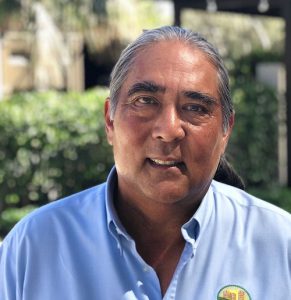 A.G. Kawamura is third generation fruit and vegetable grower and shipper from Orange County. He is the former Secretary of the California Department of Food and Agriculture (2003-2010). As a progressive urban farmer, A.G. has a lifetime of experience working within the shrinking rural and urban boundaries of Southern California. Through his company, Orange County Produce, LLC, he is engaged in building an exciting, interactive 21st century 100 acre agricultural showcase at the Orange County Great Park in Irvine, CA.
A.G. Kawamura is third generation fruit and vegetable grower and shipper from Orange County. He is the former Secretary of the California Department of Food and Agriculture (2003-2010). As a progressive urban farmer, A.G. has a lifetime of experience working within the shrinking rural and urban boundaries of Southern California. Through his company, Orange County Produce, LLC, he is engaged in building an exciting, interactive 21st century 100 acre agricultural showcase at the Orange County Great Park in Irvine, CA.


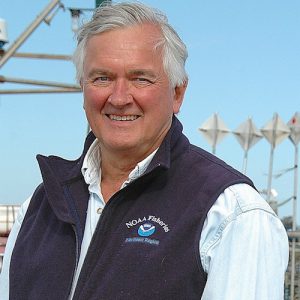 In episode 60 of Sourcing Matters John Bullard also shares some interesting stories about his roles prior to the Greater Atlantic Region at NOAA Fisheries. John Bullard (1) was past mayor of New Bedford, (2) he had a lead role at NOAA Sustainability within the Clinton administration, (3) he was past president of Sea Education Association, and as younger man he received a BA From Harvard and Masters in Architecture from MIT. An engaging dude with some interesting stories to tell. I hope our listening audience that are out on the water everyday listen to this conversation with John. You’ll be especially interested to hear his POV, and to learn whose corner he’s truly in. Tune-In
In episode 60 of Sourcing Matters John Bullard also shares some interesting stories about his roles prior to the Greater Atlantic Region at NOAA Fisheries. John Bullard (1) was past mayor of New Bedford, (2) he had a lead role at NOAA Sustainability within the Clinton administration, (3) he was past president of Sea Education Association, and as younger man he received a BA From Harvard and Masters in Architecture from MIT. An engaging dude with some interesting stories to tell. I hope our listening audience that are out on the water everyday listen to this conversation with John. You’ll be especially interested to hear his POV, and to learn whose corner he’s truly in. Tune-In With his wife Anne Biklé, David is currently framing out his fourth book. We learned that with “What your food eats” – working title of this latest deep dive – this husband & wife writing duo seek to connect soil fertility to human health. Anne and David have also worked together to pen the book ‘Dirt’ —about the plight of soil and what we’ve done to it since the dawn of agriculture. And, ‘The Hidden Half of Nature’, a revealing exploration of how microbial life underpins the health of soil and, even our own bodies.
With his wife Anne Biklé, David is currently framing out his fourth book. We learned that with “What your food eats” – working title of this latest deep dive – this husband & wife writing duo seek to connect soil fertility to human health. Anne and David have also worked together to pen the book ‘Dirt’ —about the plight of soil and what we’ve done to it since the dawn of agriculture. And, ‘The Hidden Half of Nature’, a revealing exploration of how microbial life underpins the health of soil and, even our own bodies.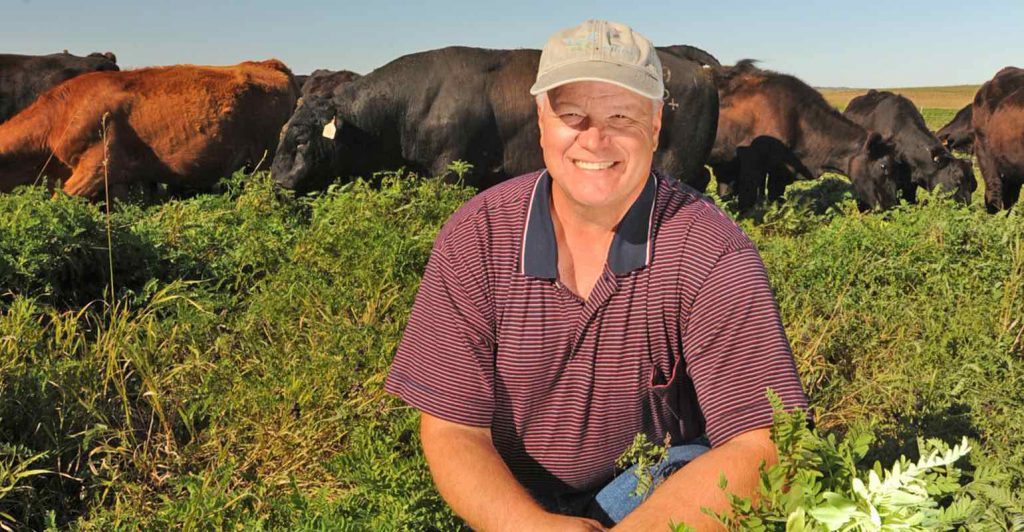
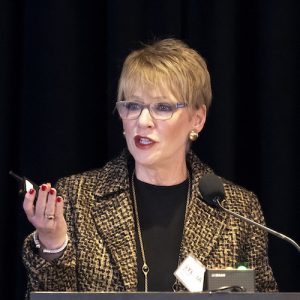 Prior to AquaBounty, Sylvia was President of StockYards, SVP of Merchandising, and President of the Manufacturing Division for US Foods. A $23 billion broad line foodservice distributor, US Foods is the the 2nd largest foodservice distributor in the US. Wulf was responsible for the P&L of the $10 billion protein and produce categories and the $1 billion Manufacturing Division of U.S. Foods Meat, Seafood and Produce operations. While leading this anchor division, Wulf developed a source to sale strategic approach that not only improved profitability but drove growth in market share at 3X the industry average. In her numerous roles responsibilities included the P&L of Perishables categories, centralized sourcing/replenishment, 15 manufacturing facilities for Meat and produce.
Prior to AquaBounty, Sylvia was President of StockYards, SVP of Merchandising, and President of the Manufacturing Division for US Foods. A $23 billion broad line foodservice distributor, US Foods is the the 2nd largest foodservice distributor in the US. Wulf was responsible for the P&L of the $10 billion protein and produce categories and the $1 billion Manufacturing Division of U.S. Foods Meat, Seafood and Produce operations. While leading this anchor division, Wulf developed a source to sale strategic approach that not only improved profitability but drove growth in market share at 3X the industry average. In her numerous roles responsibilities included the P&L of Perishables categories, centralized sourcing/replenishment, 15 manufacturing facilities for Meat and produce.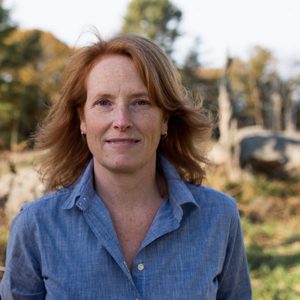 In our 45 minute conversation we discuss the ins and outs of investing in regional and sustainable food systems of the Northeast and beyond. CEI is a mission-driven lender and investor specializing in rural business development and financing. In Maine, and throughout the U.S., CEI helps to create economically and environmentally healthy communities in which all people, especially those with low incomes, can reach their full potential. CEI is unique with its dossier of offerings which include business loans, micro-loans, new market tax credits, sub-debt loans, SBA 504 loans, business plans, marketing plans, business advising, financial advising, and public policy leadership.
In our 45 minute conversation we discuss the ins and outs of investing in regional and sustainable food systems of the Northeast and beyond. CEI is a mission-driven lender and investor specializing in rural business development and financing. In Maine, and throughout the U.S., CEI helps to create economically and environmentally healthy communities in which all people, especially those with low incomes, can reach their full potential. CEI is unique with its dossier of offerings which include business loans, micro-loans, new market tax credits, sub-debt loans, SBA 504 loans, business plans, marketing plans, business advising, financial advising, and public policy leadership. In early November 2018 Goldberg hosted The “ChooseFood” symposium in Baltimore. It was a gathering to evaluate some of the core ethical questions of food and its production. Top brass speakers shared insight on ethics of in food labor, environmental impact, externalities, animal welfare, health risk factors & new tech – all were on the docket. Coming it at from the food animal side It was a fascinating exercise for me to see how far we’ve come since the 2007 PEW commission report, what more needs to be done with food animal production, and how broad the aperture has grown to encapsulate ethics into our food and global production.
In early November 2018 Goldberg hosted The “ChooseFood” symposium in Baltimore. It was a gathering to evaluate some of the core ethical questions of food and its production. Top brass speakers shared insight on ethics of in food labor, environmental impact, externalities, animal welfare, health risk factors & new tech – all were on the docket. Coming it at from the food animal side It was a fascinating exercise for me to see how far we’ve come since the 2007 PEW commission report, what more needs to be done with food animal production, and how broad the aperture has grown to encapsulate ethics into our food and global production. Faruqi’s previous work ‘Project Animal Farm’ was released in 2015. This non-fiction work looked at the world’s food system through chronicling a journey to 60 animal farms in 8 countries. Faruqi combines her hands-on immersive learning with analysis on modern global agricultural models. The well researched book comes in tow with recommendations, and food sustainability solutions for many of these international issues. She has some heavy hitters in food, agriculture and ocean health singing her praises.
Faruqi’s previous work ‘Project Animal Farm’ was released in 2015. This non-fiction work looked at the world’s food system through chronicling a journey to 60 animal farms in 8 countries. Faruqi combines her hands-on immersive learning with analysis on modern global agricultural models. The well researched book comes in tow with recommendations, and food sustainability solutions for many of these international issues. She has some heavy hitters in food, agriculture and ocean health singing her praises.